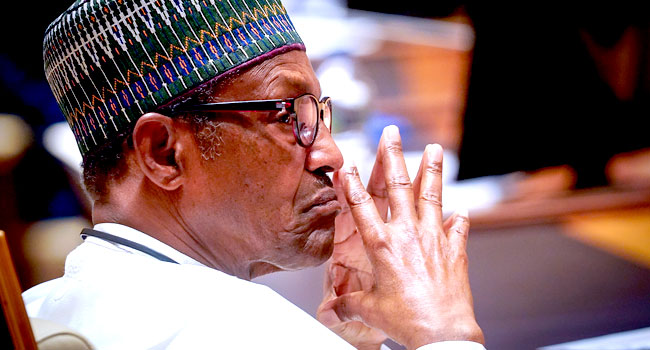A frustrated president has spoken truth to power; let us now speak truth to ourselves as citizens of this potentially great country. The local government system as a third tier of government is bad news. Its operation is an unnecessary burden on the finances of the Nigerian state.
It should be easy for anyone who looks closely to see that the local government is not functioning as the third tier of government. It is crippled by inconsistencies and ambivalence. To borrow Buhari’s favourite word in cynically dismissing whatever anyone before him did, it is a mess – and I might add, a huge mess for the country and our form of government.
For reasons that are difficult to fathom, we have refused to properly address the question fundamental to the local government system. The question is: do we need a third tier of government or two tiers of government with the local government as an administrative grass roots structure of state governments, fully and entirely funded by them as was the case with the native authorities created by the colonial authorities?
The generals saw the political and administrative wisdom of making the local government a third tier of government. Their wisdom flowed from the report of the Alhaji Ibrahim Dasuki committee on local government reforms of 1976. The generals set aside British colonial wisdom that was no longer conducive to our political developmental. Our nation wanted to be renewed and emerge as a nation duly remade in all structural and administrative particulars in the image of its khaki men who ran the corrective regime and turned our country into a political petri-dish.
How BVAS will impact 2023 elections
Canada, Ogun Govt partner on agricultural development
Three levels of autonomous governments in a country made sense to them. But they doubled the chain that binds the local governments to the state governments. Money allocated to the local governments in accordance with the revenue allocation formula, is paid to them through the state governments. The local governments cannot be autonomous unless they enjoy fiscal autonomy. As it is, they are treated like the political wards of the state governments. We cannot have it both ways. It is either we end the current fiction of the local governments as a third tier of governments, or we let the states own them as part of their administrative set up.
In his own addendum, as it were to the 1976 reforms, President Ibrahim Babangida saw the anomaly of a third tier of government fiscally tied to the apron strings of the state governments. He elected to pay the local governments shares from the federation account directly to them. And then superior wisdom erected the ugly barrier called local government joint accounts committee to which the shares of the local governments in each state are paid – and stolen by their excellencies.
President Goodluck Jonathan convened a political reform conference in 2013. It was one more attempt to remove those structural and administrative problems that bedevil our country and retard its progress and development. The conference recommended that the local governments should be the business of state governments and not that of the federal government. It also recommended that there should be a second tier of policing – a new administrative phrase for state police. The report itself is happily gathering dust on a government shelf in the company of many such reports, probably in Aso Rock.
We have never really tried to make the local government system the third tier of government. States are defined by the composition of their local government areas. The Fifth Schedule to the constitution lists 774 of them. This has been a source of some controversy since our return to civil rule in 1999 in that by listing them, it is argued that no state can create local government areas without amending the said Fifth Schedule to accommodate the new numbers.
The revenue allocation formula uses the mathematics of the number of local government areas in each state to determine how much each state gets from our common national purse. The more local governments a state has, the more its share from the federation account.
This was attractive to the state governors, who, anxious to bring in more money from the federation account into their own coffers, rushed to create new local governments from 1999. President Obasanjo saw where this madness would eventually land the nation. He put his foot down and stopped the madness. If he had allowed the madness to continue, we most probably would have more than 2,000 local government areas today. As a compromise, the new local governments were downgraded to development areas. We have the constitutionally recognised local government areas that define each state and development areas that function as local governments but are funded by the local government areas from which they were created.
I noted in an earlier column that “in our federal system with the unique feature of uniformity, nothing about the local government system is uniform anymore. The tenure of local councils varies from state to state: three years in some and two years in others. The enabling transition decree in 1999 prescribed a four-year tenure. Section 7 (1) of the constitution provides that “The system of local government by democratically elected local government council is under this constitution guaranteed…” This magisterial pronouncement does not square with the facts on the ground.
Two different sets of governments operate at the local government council level. We have elected local government councils and interim local government councils or caretaker committees. These are not known to the constitution. Unelected men and women running a government in a democracy is a serious constitutional breach. It derogates from best practices in constitutional governments. We can all see that the local government councils have become an important means of patronage in our political reward system.
Nor should we ignore the fact we have two forms of local governments: local governments and development areas. The funding of the development areas with statutory funds meant for the local government from which they were carved is clearly illegal. But in our famously litigious nation, no one is complaining.
It is asking too much to expect the local government system in its current confused and anomalous form to produce a functioning third tier of government in law and in fact. Let us end all pretences to the concept of a third tier of government. It is bad fiction. The large number of local governments saddles the Nigerian state with unnecessary burden of 811 arguably autonomous governments all feeding from the single feeding trough known as the federation account. We must have the courage to dismantle a fictional system of a third tier of government and plug at least one avenue of egregious stealing by those elected to watch over our treasuries. Two functional two tiers of government, federal and state, should serve us as they do in other lands. There is lack of wisdom in asking too many cooks to prepare the broth.
(Concluded)

 Join Daily Trust WhatsApp Community For Quick Access To News and Happenings Around You.
Join Daily Trust WhatsApp Community For Quick Access To News and Happenings Around You.

